How can you help your loved ones, by speeding up the “slow” and expensive research into Alzheimer’s disease?
Studying the molecular basis and causes of Alzheimer's disease, including hereditary forms of the disease, is a real challenge for research laboratories since the stability of proteins and their adhesion, aggregation to each other and to neighbouring molecules, is complex experimental task, compared to proteins and molecules that do not tend to form “sticky” unstable aggregates.
We offer a completely new approach to the study of Alzheimer's disease, ten times much more affordable!
Main research question:
Do diverse genetic backgrounds change the risk of onset or progression of Alzheimer’s disease?

Yes, it changes risks. This is the focus of our detailed study.
Hereditary forms of mutations in the amyloid proteins Amyloid-beta precursor protein (APP) carry both an increased risk of early onset of disease and mutations that protect against Alzheimer's disease.
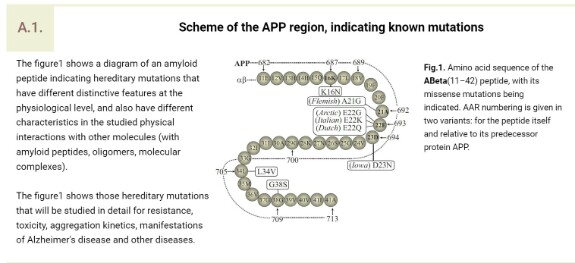
What do we have at this moment?
1. Accumulated statistics on mutations in APP, and the corresponding disease trend corresponding to each mutation.
2. Isolated, fragmentary biochemical studies examining the interactions of APP with other proteins, some involving mutations, some not, or not sharing a cohort of patients and cell lines.
so we have a set of biological molecules that interact (in some way) with the amyloid peptide
MUTATIONS IN APP
APP encodes amyloid precursor protein, a transmembrane protein which is cleaved to form amyloidogenic Aβ peptides. Mutations in APP are associated with familial forms of early onset Alzheimer's disease as well as with Cerebral Amyloid Angiopathy (CAA). Pathogenic mutations generally leading in an overall increase in Aβ production and/or a change in the ratio of specific Aβ peptides.
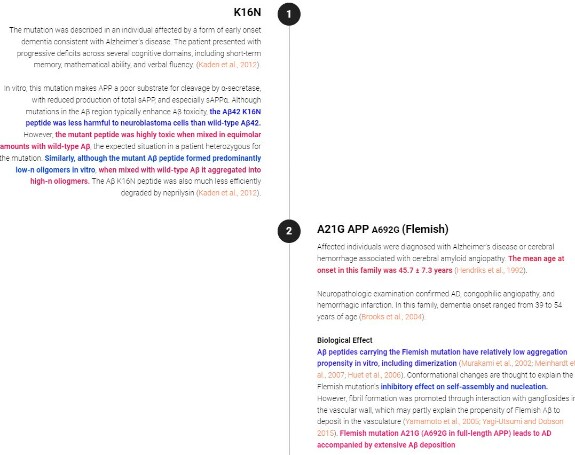
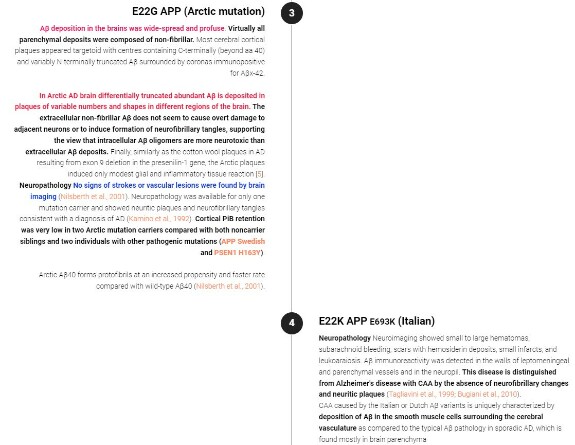
The absence of neuritic plaques and tangles made it possible to distinguish the disease from familial AD with CAA and to call it hereditary cerebral hemorrhage with amyloidosis (HCHWA).Biological Effect It is possible that this variant affects the conformation of Aβ peptides changing their rate of fibrillization. Indeed, a variant in this same position and associated with a similar phenotype, E693Q, accelerates polymerization into protofibrils and fibrils
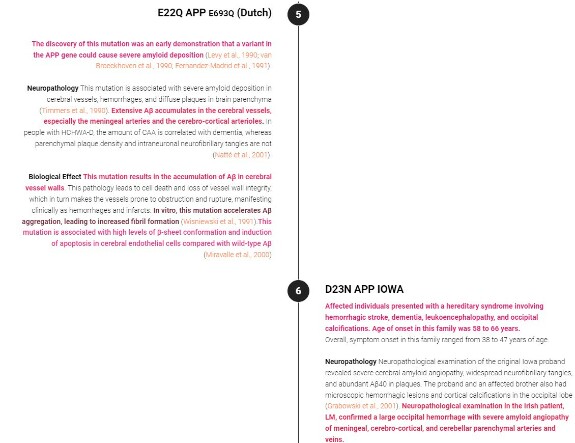
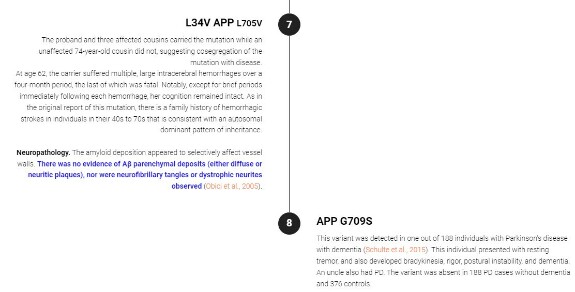
We expect to analyse:
-biochemical processes involving the genetic characteristics of patients with various types of AD,
-build a biochemical scheme for each case,
-identify critical nodes for the subsequent shift in thermodynamic equilibrium and,
as a result, changes in biochemistry at the cellular level and physiological profiles in general.
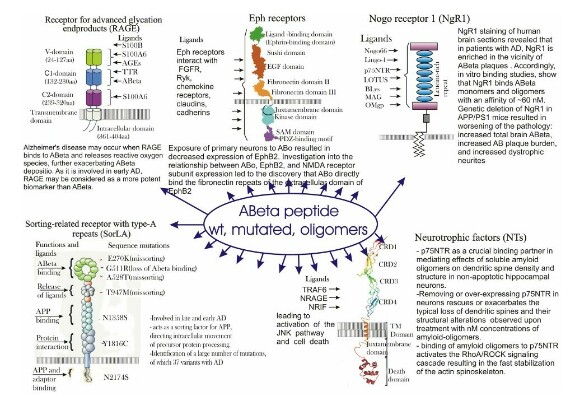
If the dimeric complex is stable, then the formation of high molecular weight structures was much slower. This was due to the fact that the stable amyloid peptides were in no hurry to enter into chemical reactions with other amyloid peptides to achieve equilibrium.
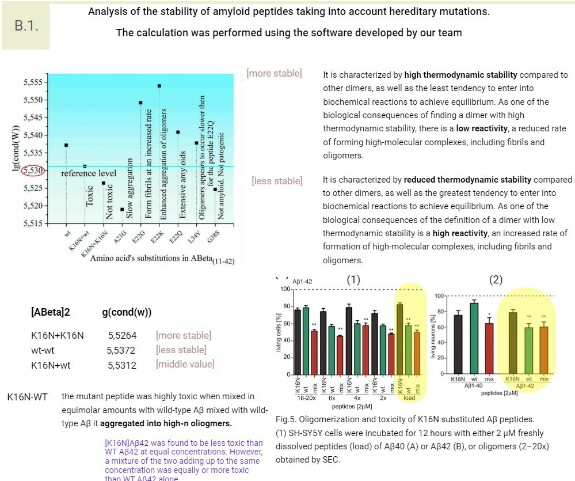
Next stages of research:
The study of hereditary forms of mutations leading to early and late forms of dementia, as well as providing protective properties against the formation of plaques.
1. High Quality amyloid peptides
Development of amyloid peptides that are characterized by high thermodynamic stability, demonstrating increased time of aggregation kinetics
(Done. Contact the authors for information)
2. Hereditary forms of AD
Study of various schemes of biochemical reactions involving various hereditary forms of amyloid peptides. The construction of biochemical schemes is carried out in three stages, see the section "Biomarkers".
3. Individual Approach and Personalized medicine
Identification of differences in the passage of biochemical reactions involving hereditary forms of amyloid peptides.
4. Changing biochemical pathways.
Introduction and analysis into biochemical pathways of peptides that meet the requirements of high kinetic and thermodynamic stability.
5.Antibodies to amyloid peptides
Selection of flexible chains of antibodies both to amyloid peptides and to intermediate targets determined in biochemical chains. For selection of antibody flexible chains, see "Antibody Development".










